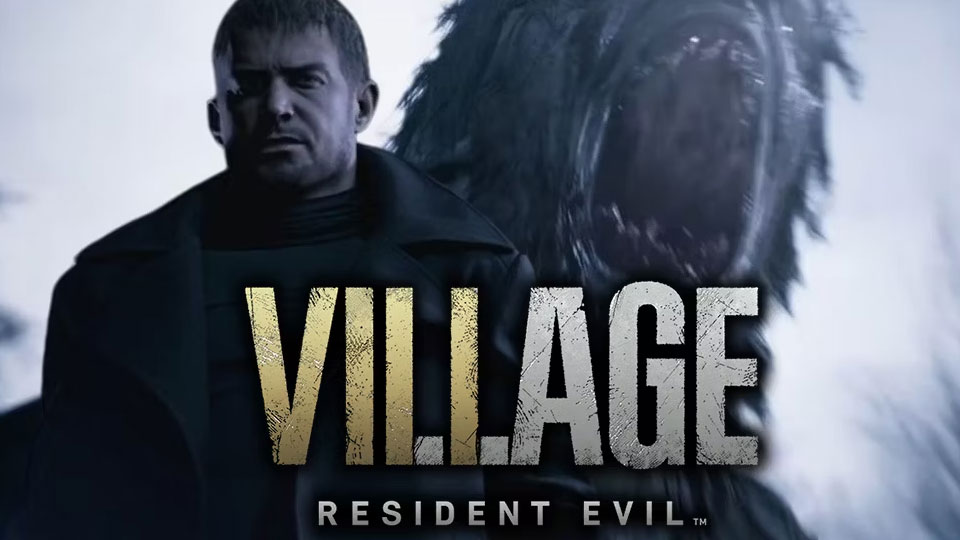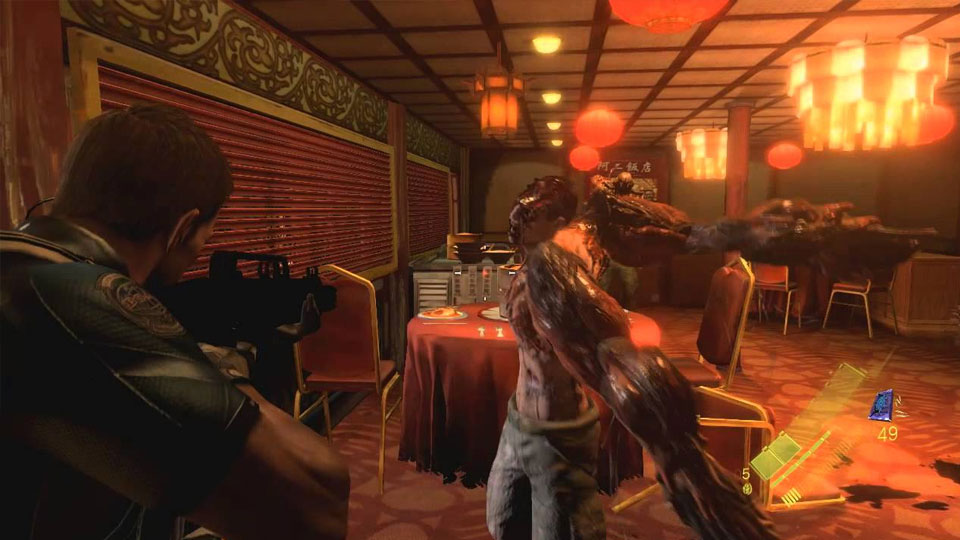The Resident Evil series, known as Biohazard in Japan, is a cornerstone of the survival horror genre. Developed and published by Capcom, the franchise has a long history of delivering spine-chilling experiences filled with terrifying creatures, intricate puzzles, and gripping narratives. With the series’ successful transition to PC, Resident Evil has reached an even broader audience.

Origins of the Series
Resident Evil debuted in 1996, introducing players to a world overrun by zombies and other bio-organic weapons (B.O.W.s) created by the sinister Umbrella Corporation. The original game set the standard for survival horror, combining elements of exploration, puzzle-solving, and combat.
Transition to PC
The franchise’s transition to PC has allowed for enhanced graphical fidelity, improved controls, and a more expansive modding community. This move has made the series more accessible to a wider audience, ensuring its place in the annals of gaming history.
Gameplay
Survival Horror Elements
The Resident Evil series is renowned for its survival horror elements, which include limited resources, challenging enemies, and an atmosphere of constant tension.

Resource Management
Players must carefully manage their ammunition, health items, and other resources. This scarcity forces strategic thinking and heightens the tension, as every decision can mean the difference between life and death.
Inventory System
The inventory system in Resident Evil games often requires players to make tough choices about which items to carry. This adds a layer of strategy, as players must balance their need for weapons, healing items, and key objects to solve puzzles.
Combat and Enemy Design
Combat in Resident Evil is often methodical, with a focus on conserving ammunition and avoiding unnecessary confrontations. The series features a variety of enemies, from slow-moving zombies to more agile and deadly creatures.
Classic Enemies
Zombies are the staple enemies of the series, but players also face Lickers, Hunters, and the iconic Tyrant. Each enemy type requires different strategies to defeat, adding variety to the combat.
Boss Fights
Boss fights in Resident Evil are memorable and often require players to use their wits and resources effectively. These encounters are usually climactic and add to the overall narrative tension.

Exploration and Puzzle-Solving
Exploration is a key component of Resident Evil, with players navigating through intricate environments filled with secrets and puzzles.
Environmental Storytelling
The series excels at environmental storytelling, with every location filled with clues about the events that transpired there. Players uncover the story through documents, audio logs, and environmental details.
Intricate Puzzles
Puzzles are a hallmark of the series, ranging from simple lock-and-key mechanisms to complex, multi-step brainteasers. These puzzles often require players to pay close attention to their surroundings and think critically.
Evolution of the Series
Classic Era (1996-2002)
The early Resident Evil games, including the original trilogy and Resident Evil Code: Veronica, defined the survival horror genre with their fixed camera angles, tank controls, and pre-rendered backgrounds.
Resident Evil (1996)
The game that started it all, Resident Evil introduced players to the Spencer Mansion and its horrifying inhabitants. The game’s atmosphere, resource management, and puzzle-solving set the template for future entries.

Resident Evil 2 (1998)
Resident Evil 2 expanded the series’ scope, taking players to Raccoon City and introducing dual protagonists Leon S. Kennedy and Claire Redfield. The game is celebrated for its engaging story, improved gameplay mechanics, and replayability.
Resident Evil 3: Nemesis (1999)
This entry introduced the relentless Nemesis, a creature that could pursue the player throughout the game. Resident Evil 3 added more action-oriented gameplay while maintaining the series’ core survival horror elements.
Modern Era (2005-Present)
The series underwent significant changes with Resident Evil 4, which introduced an over-the-shoulder camera and more action-focused gameplay. This era has seen a blend of survival horror and action, culminating in a return to form with recent titles.
Resident Evil 4 (2005)
Resident Evil 4 revolutionized the series with its dynamic camera, improved controls, and action-packed gameplay. The game is widely regarded as one of the best in the series and has influenced many subsequent third-person shooters.
Resident Evil 5 (2009) and Resident Evil 6 (2012)
These entries leaned heavily into action, featuring cooperative gameplay and large-scale set pieces. While they were commercially successful, they received mixed reviews from fans and critics for straying too far from the series’ horror roots.
Resident Evil 7: Biohazard (2017)
Resident Evil 7 marked a return to the series’ survival horror roots, with a first-person perspective and a focus on atmospheric tension. Set in the creepy Baker mansion, the game reinvigorated the franchise and received critical acclaim.
Resident Evil 2 (2019) and Resident Evil 3 (2020) Remakes
The remakes of Resident Evil 2 and Resident Evil 3 brought these classics to modern audiences with updated graphics, improved gameplay, and expanded storylines. They successfully balanced nostalgia with innovation.
Resident Evil Village (2021)
Resident Evil Village, the direct sequel to Resident Evil 7, continues the first-person perspective and survival horror elements while adding more action and exploration. The game is known for its diverse environments and memorable characters.
Visual and Audio Design
Graphical Evolution
The Resident Evil series has seen significant graphical improvements over the years, from pixelated textures to photorealistic visuals. The modern entries utilize the RE Engine, which delivers stunning graphics and detailed character models.
Realistic Environments
The environments in Resident Evil games are meticulously crafted, with attention to detail that enhances the atmosphere and immersion. Lighting, shadows, and particle effects contribute to the sense of dread and realism.
Character Design
Character models in the series have become increasingly lifelike, with expressive facial animations and detailed textures. This enhances the emotional impact of the story and makes the horror elements more convincing.
Sound Design and Music
Sound design is a crucial component of the Resident Evil experience. The series uses audio to create tension, convey the environment’s atmosphere, and provide gameplay cues.
Ambient Sounds
Ambient sounds, such as creaking floors, distant footsteps, and eerie whispers, heighten the sense of unease. These subtle audio cues keep players on edge and enhance the immersion.
Music
The music in Resident Evil games ranges from haunting melodies to intense, adrenaline-pumping tracks. The soundtrack is carefully composed to match the game’s tone and pacing, adding to the overall experience.
Voice Acting
Voice acting has improved significantly since the series’ early days. Modern entries feature high-quality performances that bring the characters to life and add depth to the story.
Community and Modding
Modding Community
The PC versions of Resident Evil games have fostered a vibrant modding community. Mods range from simple cosmetic changes to extensive gameplay overhauls, enhancing replayability and customization.
Popular Mods
Some popular mods include graphical enhancements, custom character skins, and new gameplay modes. These mods allow players to tailor their experience and keep the game fresh.
Creating Mods
Tools and resources are available for aspiring modders, enabling them to create and share their content. This community-driven aspect has contributed to the series’ longevity and appeal.
Fan Theories and Discussions
The Resident Evil community is active and passionate, engaging in discussions about the series’ lore, characters, and future. Fan theories and analyses add depth to the experience and keep the community engaged.
Lore Exploration
Fans delve into the intricate lore of the Resident Evil universe, piecing together the connections between games and uncovering hidden details. This collaborative exploration enriches the overall experience.
Speculations and Predictions
With each new release, fans eagerly speculate about upcoming titles, plot twists, and character arcs. This anticipation and engagement drive excitement and maintain interest in the series.
Tips and Strategies for New Players
Mastering Resource Management
Effective resource management is key to surviving in Resident Evil. Conserve ammunition, make strategic use of healing items, and prioritize essential inventory items.

Inventory Management
Organize your inventory to ensure you have enough space for critical items. Discard or store unnecessary items in item boxes to free up space for important resources.
Efficient Combat
Aim for headshots and critical hits to conserve ammunition. Use melee attacks and environmental hazards to save bullets when possible.
Explore thoroughly to find hidden items and clues. Pay attention to the environment for hints on solving puzzles and uncovering secrets.
Map Awareness
Use the map to keep track of locked doors, puzzles, and item locations. This will help you plan your routes and avoid unnecessary backtracking.
Puzzle-Solving
Take your time with puzzles and pay attention to the details. Keep notes if necessary, and remember that some puzzles may require items found later in the game.
Combat Strategies
Each enemy type has specific weaknesses and attack patterns. Learn these patterns and adapt your strategy accordingly.
Dealing with Bosses
Boss fights often require specific strategies and use of the environment. Pay attention to any weaknesses or patterns in the boss’s behavior.
Avoiding Encounters
Sometimes, avoiding combat is the best strategy. Use stealth and diversion tactics to bypass enemies and save resources for critical encounters.
Impact and Legacy of Resident Evil
Influence on the Horror Genre
Resident Evil has had a profound impact on the survival horror genre, setting standards for atmosphere, gameplay mechanics, and storytelling. Its influence can be seen in numerous other horror games.
Defining Survival Horror
The series defined key elements of survival horror, such as resource management, environmental storytelling, and a balance between combat and puzzle-solving. These elements have been adopted by many other games in the genre.
Inspiring New Generations
Resident Evil continues to inspire new generations of game developers and players. Its blend of horror, action, and narrative remains a benchmark for quality and innovation.
Cultural Impact
The series has extended beyond gaming, influencing movies, books, and other media. Its characters and themes have become iconic in popular culture.
Film Adaptations
The Resident Evil film series, while diverging from the games’ storylines, has brought the franchise to a wider audience. Animated films and other adaptations have also expanded the series’ reach.
Merchandise and Spin-Offs
Resident Evil has spawned a wide range of merchandise, including action figures, clothing, and collectibles. Spin-off games and media further explore the universe, adding depth and variety to the franchise.
Conclusion
Resident Evil for PC represents the pinnacle of survival horror gaming, combining intense gameplay, compelling narratives, and atmospheric design. The series has evolved significantly over the years, embracing new technologies and gameplay innovations while staying true to its roots.
As you delve into the world of Resident Evil, whether through classic titles or modern entries, you’ll experience a masterclass in horror storytelling and game design. The franchise’s rich history and enduring appeal make it a must-play for any fan of the genre.
Prepare to face your fears, solve intricate puzzles, and uncover the dark secrets of the Umbrella Corporation. Resident Evil promises an unforgettable journey into the heart of survival horror, challenging you to survive against all odds and emerge victorious.





